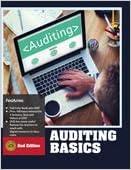Question
need question #2 CHAPTER CASE 16 17 Stanley Manufacturing Working Capital Management, Part 1 You have recently been hired by Stanley Manufacturing to work in
need question #2 CHAPTER CASE 16 17 Stanley Manufacturing Working Capital Management, Part 1
You have recently been hired by Stanley Manufacturing to work in its newly established treasury department. Stanley Manufacturing is a small company that produces cardboard boxes in a variety of sizes. Gary Stanley, the owner of the company, works primarily in the sales and production areas. Currently, the company puts all receivables in one shoe box and all payables in another. Because of the disorganized system, the finance area needs work, and that is what you've been brought in to do.
The company currently has a cash balance of $150,000 and plans to purchase new box folding machinery in the fourth quarter at a cost of $300,000. The purchase of the machinery will be made with cash because of the discount offered. The company's policy is to maintain a target cash balance of $100,000. All sales are in cash and all purchases are made on credit.
Gary Stanley has projected the following gross sales for each of the next four quarters:
| Q1 | Q2 | Q3 | Q4 | Q1 Next Year | |
| Gross Sales | $900,000. | $920,000 | $935,000 | $950,000 | $960,000 |
Gross sales for the first quarter of next year are projected at $960,000.
Stanley typically orders 50 percent of next quarter's projected gross sales in the current quarter, and suppliers are typically paid in 53 days. Wages, taxes, and other costs run about 30 percent of gross sales. The company has a quarterly interest payment of $90,000 on its long-term debt.
The company uses a local bank for its short-term financial needs. It pays 2.00 percent per quarter on all short-term borrowing and maintains a money market account that pays 1.00 percent per quarter on all short-term deposits.
Gary has asked you to prepare a cash budget and short-term financial plan for the company under the current policies. He has also asked you to prepare additional plans based on changes in several inputs.
Hint create a spreadsheet that calculate each Quarters; Sales, Payable paid (current and previous quarter), Wages, taxes, and other costs, Interest, to determine cash flow. Also for cash paid for material (A/P) on an average 53 days use Payables from previous quarter Current sales X .5 X (53/90) Payables from current quarter Current sales X .5 X [(90-53)/90]
QUESTIONS
- Use the numbers given to complete the cash budget and short-term financial plan at the $100,000. Target Cash balance level.
- Rework the cash budget and short-term financial plan assuming Stanley changes to a target balance of $80,000.
2.
| Cash Budget | ||||
| Q1 | Q2 | Q3 | Q4 | |
| Beginning Cash | ||||
| Net Cash Inflows | ||||
| Ending cash Balance | ||||
| Minimum Cash Balance | ||||
| Cumulative Surplus | ||||
| Short Term Financing Plan | ||||
| Q1 | Q2 | Q3 | Q4 | |
| Target cash balance | ||||
| Net cash inflow | ||||
| New short term investments | ||||
| Short term Investments sold | ||||
| New short term borrowing | ||||
| Interest on short term borrowing | ||||
| Short term borrowing repaid | ||||
| Ending cash balance | ||||
| Minimum cash balance | ||||
| Cumulative surplus / deficit | ||||
| Beginning short term investments | ||||
| Ending short term investments | ||||
| Beginning short term debt | ||||
| Ending short term debt | ||||
Step by Step Solution
There are 3 Steps involved in it
Step: 1

Get Instant Access to Expert-Tailored Solutions
See step-by-step solutions with expert insights and AI powered tools for academic success
Step: 2

Step: 3

Ace Your Homework with AI
Get the answers you need in no time with our AI-driven, step-by-step assistance
Get Started


